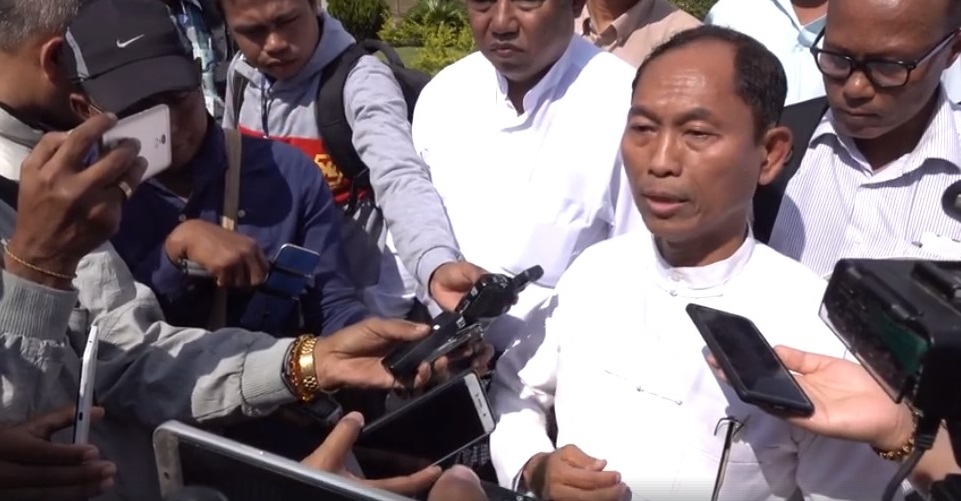A political party formed by members of the “88 Generation” is one step closer to becoming a reality this week, as organisers of the effort submitted an application to the Union Election Commission (UEC) on Tuesday seeking official recognition.
The political aspirants — several drawn from the ranks of the 88 Generation Peace and Open Society activist group — settled on the “Four Eights Party” in their bid to the UEC, after mulling multiple possible names. The decision was made during the second sitting of a committee established in July to set up the political party.
“In the first session, there were already some proposals from states and regions regarding the name of the party,” said Ant Bwe Kyaw, the committee’s information officer. “Some of them were 8888 People’s Party, 8888 Democracy Party; meaning the members wanted to include 8888 in the name.”
Leaders of the activist cohort, which takes its name from the 1988 student protest movement, announced in March their intention to form a party.
Ko Ko Gyi, an 88 Generation stalwart, pushed back against criticism from some quarters that in naming the party after the protests nearly three decades ago, its organisers were seeking to own the historic pro-democracy movement of that year.
“The ’88 uprising is the backbone of the country,” he said. “The comrades who actively participated in the uprising highly value and respect the ‘Four Eights.’ Among other names proposed, the ‘Four Eights’ is the simplest one and a widely known term among the general public, making the name all-encompassing.”
He added, “It is not just a number or a logo. It has very soaring objectives and ambitions behind it. I want to explain that the name denotes more political meaning than just a normal number.”
If approved by the UEC, the Four Eights Party could very well challenge a political order— at least in terms of civilian governance — of essentially single-party rule in the wake of the National League for Democracy’s landmark 2015 election win.
[related]
Ko Ko Gyi was among the most conspicuous omissions from the NLD’s slate of candidates for the 2015 general election. It was a roster that sparked internal dissent and several party defections, with the selection process criticised by some as top-down and lacking local input.
There are more than 90 political parties officially registered in Burma, but relatively few saw electoral success in 2015. The NLD won nearly 80 percent of elected seats in the Union Parliament, trouncing the formerly ruling, military-backed Union Solidarity and Development Party.
Burma’s de facto leader, NLD founding member Aung San Suu Kyi, has often appeared at public events with leading members of the 88 Generation.



